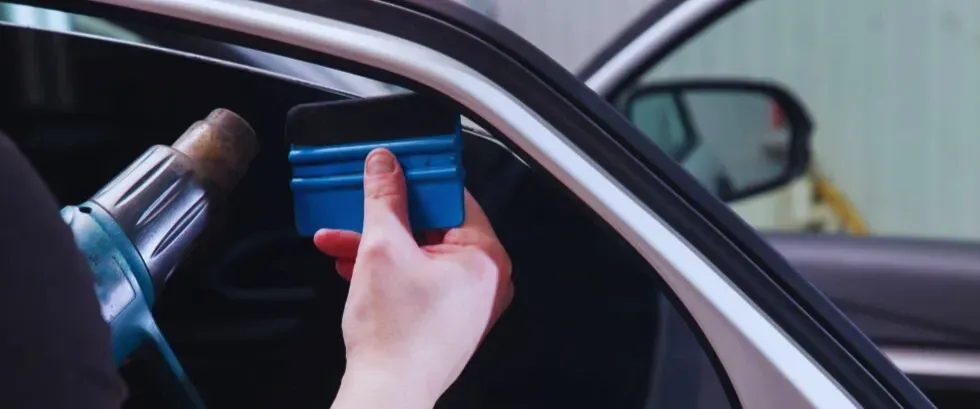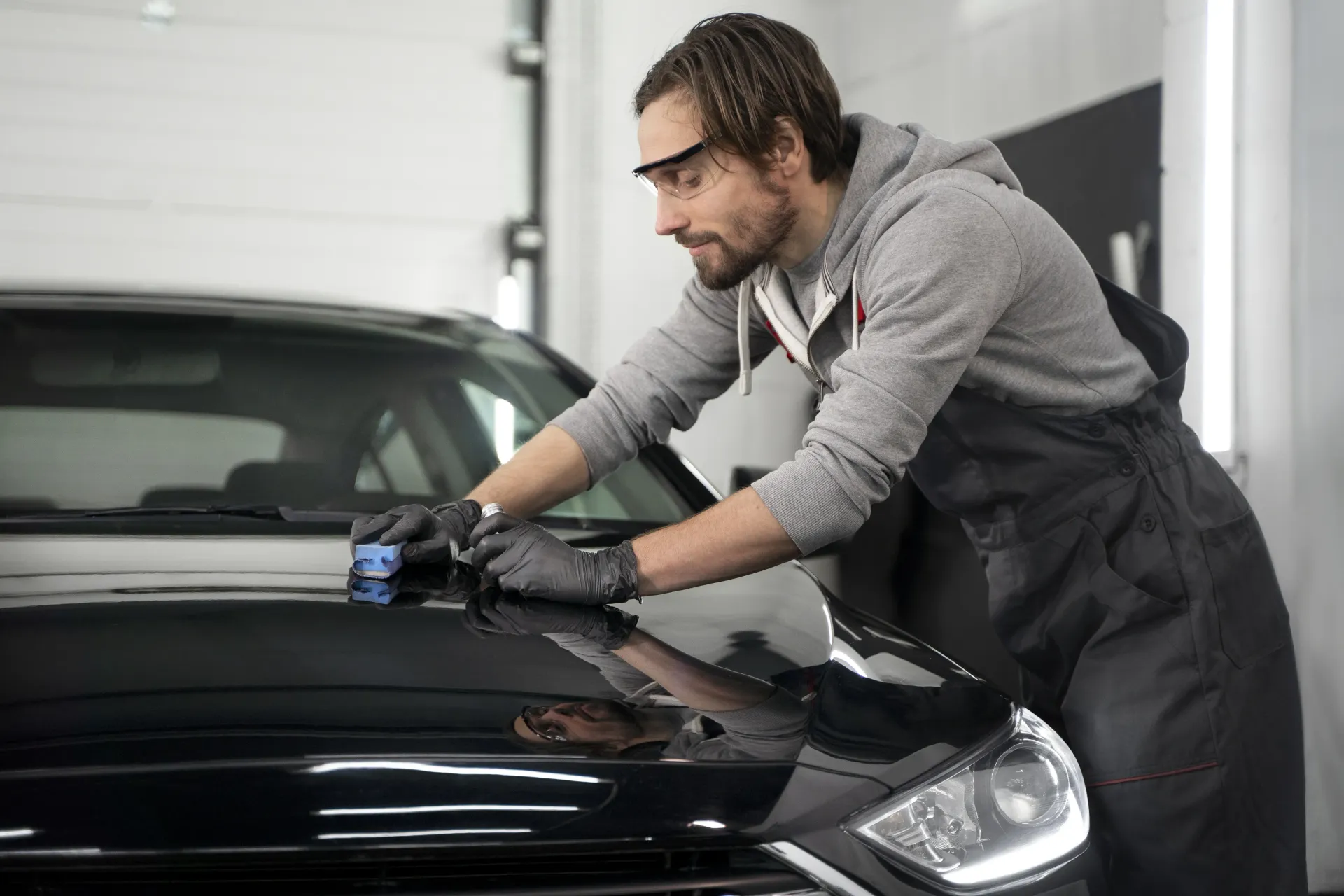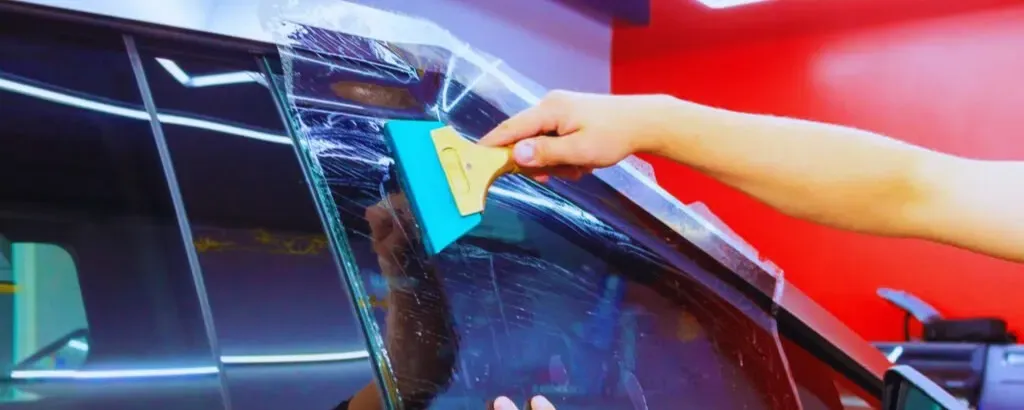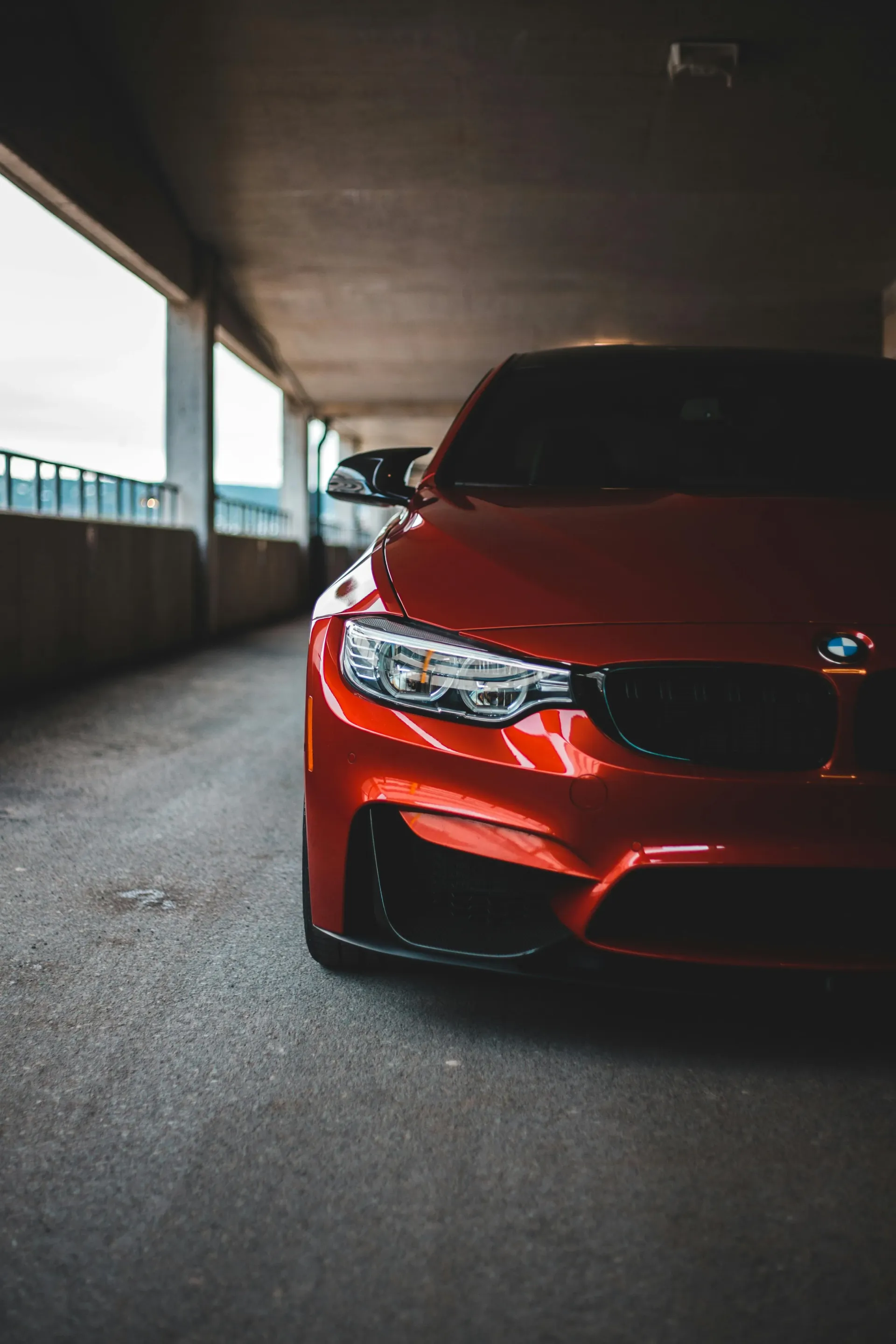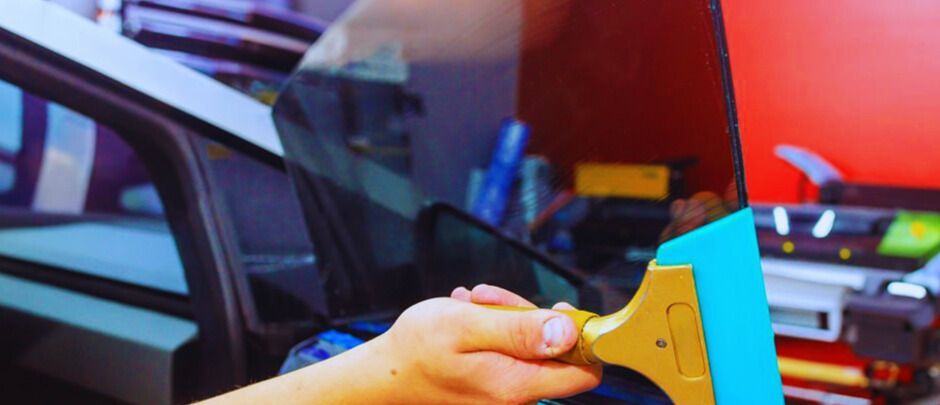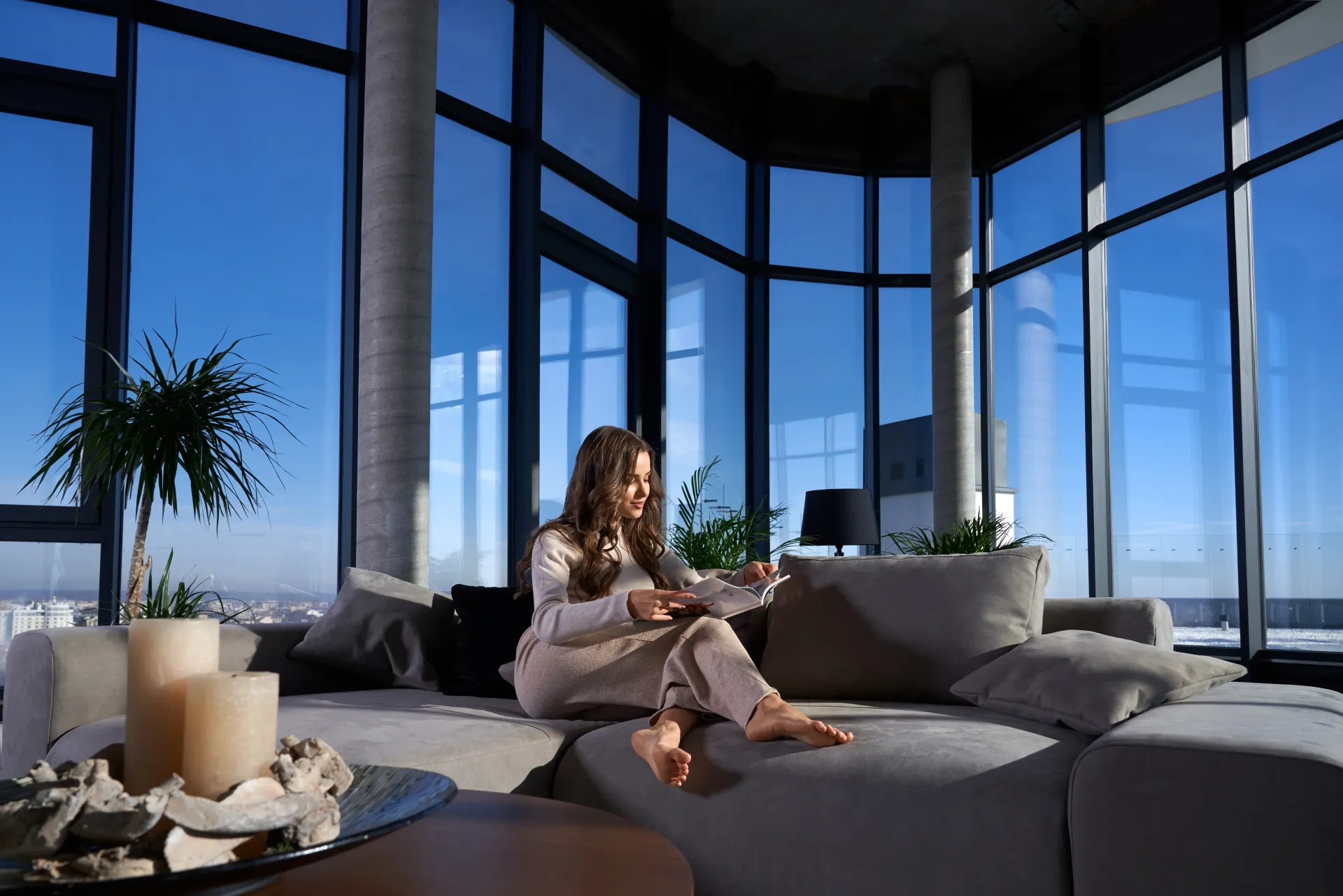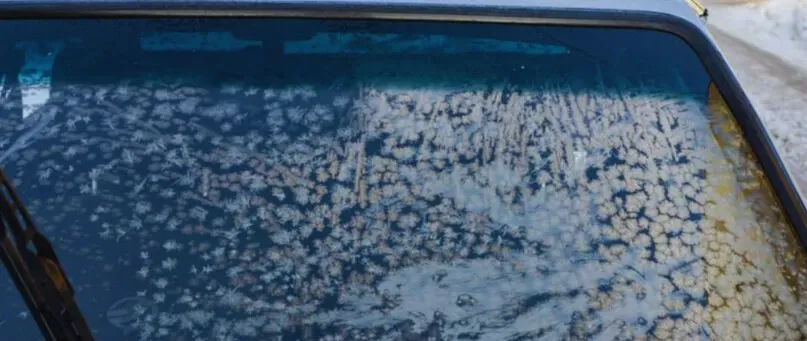Ceramic Tint vs Regular Tint: What’s the Difference?
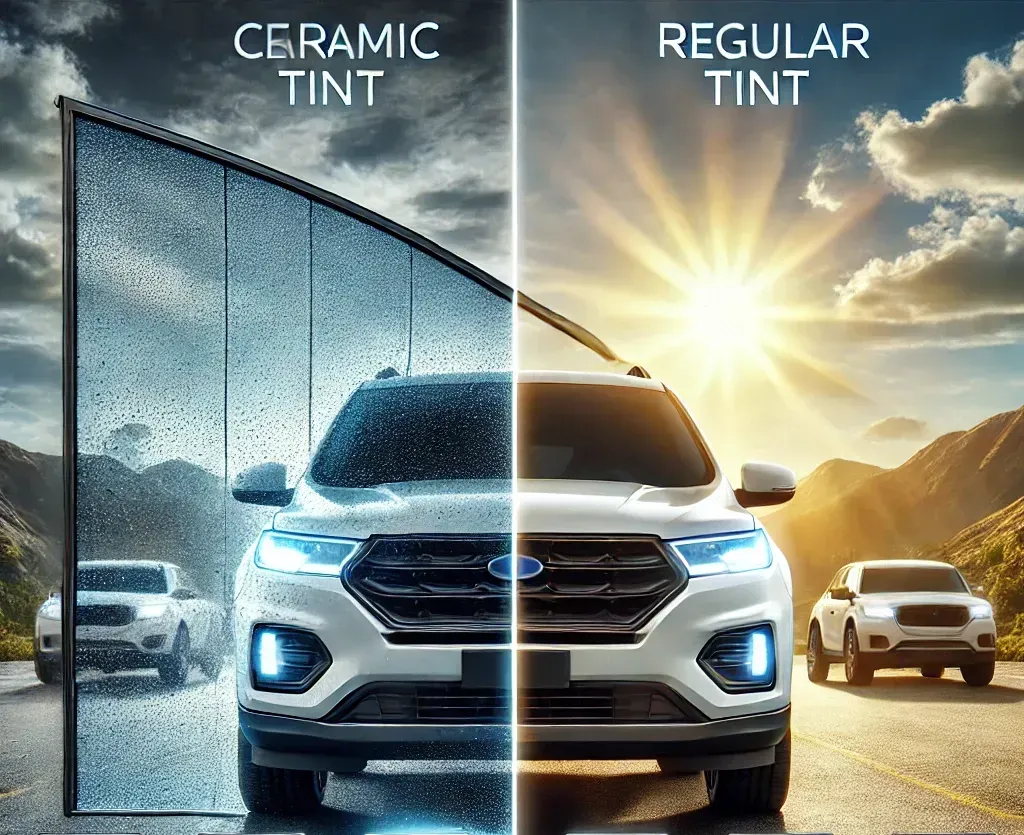
What is Regular Window Tint?
Regular tint, also known as dyed or metallic tint, is the most common and affordable window tint option. It consists of a thin film with dye or metal particles embedded to block sunlight and provide privacy.
Pros of Regular Tint:
✔
Affordable: Costs less than ceramic tint, making it a budget-friendly option.
✔
Reduces Glare: Helps minimize glare from the sun and headlights.
✔
Enhances Privacy: Darker shades offer increased privacy.
Cons of Regular Tint:
❌
Limited Heat Rejection: While it blocks some heat, it’s less effective than ceramic tint.
❌
Can Fade Over Time: Dyed films tend to fade and turn purple due to prolonged sun exposure.
❌
Interferes with Electronics: Metallic tints can disrupt GPS, radio, and phone signals.
❌
Less Durable: More prone to bubbling, peeling, and discoloration over time.
Regular tint is a good choice for those on a budget or looking for basic UV and glare reduction. However, if you want long-term benefits and superior performance, ceramic tint may be a better option.
What is Ceramic Window Tint?
Ceramic tint is the premium window tinting option made with nano-ceramic technology rather than dyes or metals. It provides excellent heat rejection, UV protection, and durability without interfering with electronic signals.
Pros of Ceramic Tint:
✔
Superior Heat Rejection: Blocks up to
85% of infrared heat, keeping your car significantly cooler.
✔
Excellent UV Protection: Reduces
99% of harmful UV rays, protecting passengers and the interior from sun damage.
✔
No Signal Interference: Unlike metallic tints, ceramic tint won’t disrupt cell phones, GPS, or radio signals.
✔
Increases Safety: Reinforces glass, making it more shatter-resistant in case of an accident.
✔
Fade & Scratch-Resistant: Maintains color and clarity without bubbling or peeling over time.
Cons of Ceramic Tint:
❌
Higher Cost: More expensive than regular tint due to its advanced technology and durability.
❌
Professional Installation Required: Requires expert handling for proper application.
How Long Does Each Type of Tint Last?
- Regular Tint: Typically lasts 3-5 years before fading, peeling, or bubbling.
- Ceramic Tint: Can last 10+ years with proper maintenance.
Because of its longer lifespan, ceramic tint often ends up being more cost-effective in the long run.
Which Tint is Best for You?
Choosing between ceramic and regular tint depends on your needs, budget, and long-term expectations.
Choose Regular Tint If:
✔ You want an
affordable window tinting option.
✔ You don’t mind replacing it every few years.
✔ You’re mainly looking for
privacy and glare reduction rather than heat rejection.
Choose Ceramic Tint If:
✔ You live in a
hot climate and need
maximum heat rejection.
✔ You want
superior UV protection to protect your car’s interior and your skin.
✔ You use
GPS, radio, and mobile devices frequently and don’t want interference.
✔ You’re looking for a
long-term investment with a high-quality finish.
If you’re unsure which tint is right for you, visit Tint Integrity for expert advice on choosing the best tint for your vehicle.
Where to Get Professional Window Tinting?
No matter which tint you choose, proper installation is essential to ensure a flawless finish and long-lasting results. Professional tinting services use high-quality materials and precise techniques to avoid bubbling, peeling, and uneven application.
For expert window tinting, check out Tint Integrity for premium ceramic and regular tint installations.
FAQs About Ceramic Tint vs Regular Tint
Does ceramic tint make a car cooler than regular tint?
Yes! Ceramic tint blocks up to 85% of infrared heat, keeping your car’s interior much cooler than regular tint.
Is ceramic tint worth the extra cost?
Absolutely. While ceramic tint is more expensive upfront, its superior durability, heat rejection, and UV protection make it a cost-effective choice in the long run.
Can I install window tint myself?
While DIY tint kits are available, professional installation ensures a smooth, bubble-free application and optimal performance.
Does ceramic tint look darker than regular tint?
Not necessarily. Ceramic tint can provide the same level of darkness as regular tint while offering better heat rejection and UV protection.
Will ceramic tint affect my car’s resale value?
Yes! High-quality ceramic tint can enhance your car’s value by protecting the interior and improving its overall aesthetics.
Final Thoughts: Which Tint Should You Choose?
Both ceramic tint and regular tint offer benefits, but ceramic tint is the clear winner when it comes to performance, durability, and overall value. If you want the best in heat rejection, UV protection, and longevity, ceramic tint is worth the investment.
For high-quality ceramic and regular tint installations, visit Tint Integrity today.
📞 Have questions? Contact our team for expert tinting services and recommendations!
